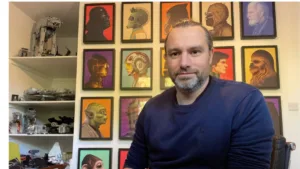The thorny issue of ethics will drive the next decade of digital marketing, according to futurist Scott Brinker.
The digital evangelist and author says that as “interesting as the last ten years have been, the next ten years will be more so”.
He believes: “There are many challenges facing us, particularly in technology, particularly surrounding machine learning and AI, and the data within that, because of the ethics and data.
Brinker says “already” you can see how “destructive these sorts of things” are, pointing to, for instance, controversies around US election voting.
“There are some really disruptive forecasts now happening around us. There are algorithms created by men, for instance, that amplifies the challenge for us as a society. We need to sort out how to deal with this so we can have one industry perception and one ethics perspective,” continues Brinker.
His interview with New Digital Age coincides with his appearance at the DeepCrawl Live 2020’s virtual seminar this week, which helps CMOs to drive growth through digital innovation.
Brinker leads the VP Platform Ecosystem at HubSpot. He shapes the company’s platform strategy and the business programs for its global technology partner ecosystem. He was previously the co-founder and CTO of ion interactive. Since 2008, he has run the Chief Marketing Technologist blog, chiefmartec.com, and is author of Hacking Marketing.
In an earlier article, Brinker shared insights from The Digital Future report, produced by DeepCrawl in collaboration with Econsultancy. Brinker said that the Covid pandemic had helped drive companies actually embrace technology rather than simply strategise around it.
He talks post-Covid and believes that there is an upside: “I’m an optimist. We will get this pandemic under control – and that’s going to be a really good opportunity for global business to have a resurgence,” he says.
Another upside has been the democratisation of learning, particularly around the conference circuit. “There is the recognition of accessibility, you know like it used to be. If you wanted to learn something from a particular speaker at a particular conference before you had to travel to them and you had to take days off.
“I think one of the really big advantages of these virtual conferences is now wherever, an event is happening in the world and wherever you are located you can attend – even just the one session. You can learn from it.”
However, he misses the “serendipity” that comes from in-person events and the “organic understanding that gets transmitted”.
Brinker is a prolific blogger and each year produces a visual representation of the industry he works in. His first efforts would take just days: now, he has the help of nine staff over a number of months. “It’s a beast,” he adds.








